#StudentsNotProducts
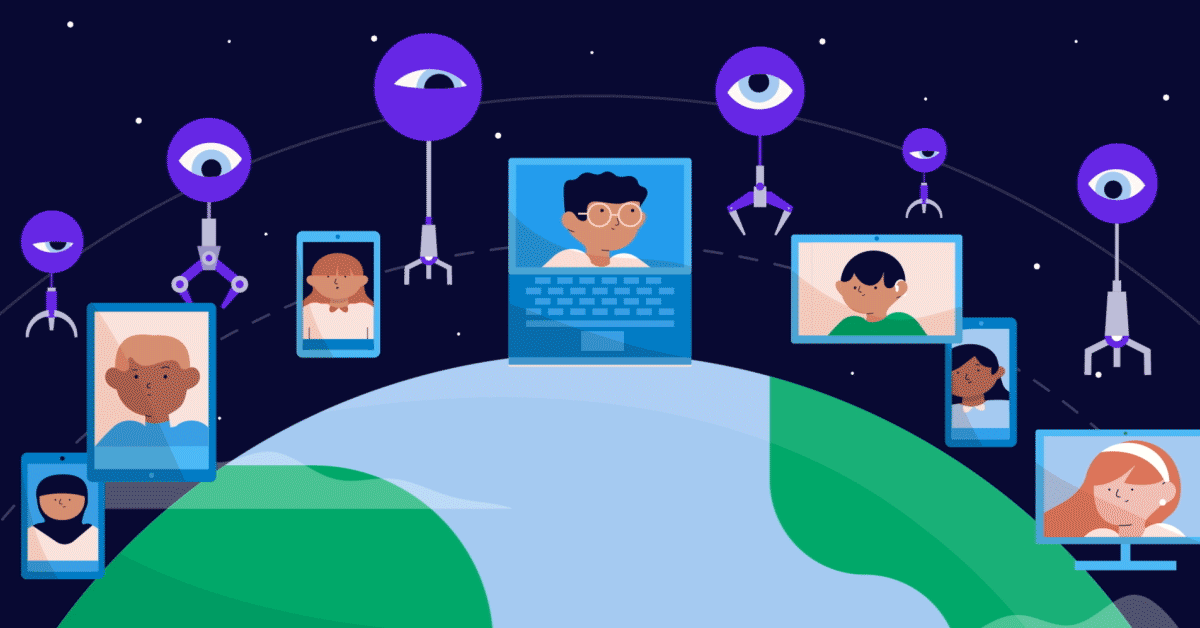
2022 - 2023
THE PROBLEM:
In May 2022 Human Rights Watch released a ground-breaking global report on how the vast majority of government-authorized education technologies ("EdTech) that were used for remote learning during the pandemic violated children's right to privacy.
THE SOLUTION:
In conjunction with the launch of the report, Human Rights Watch’s Public Engagement team designed the global digital campaign #StudentsNotProducts. The campaign included a microsite, video, and other interactive tools, to help educate and galvanize key stakeholders – parents, teachers, and kids – to call on companies and governments to act and better protect children online.
DESIGN TEAM:
Lead Design - HyperAkt Agency
Campaign Art Direction - Nailah Ali, Ziva Juneja
A SELECTION OF CORRESPONDING SOCIAL MEDIA ASSETS
Parent Teacher Guide to better protecting children online, adapted as a carousel for social media.
Suite of primary social graphics that rolled out with the campaign launch. (Translated in 4 languages)
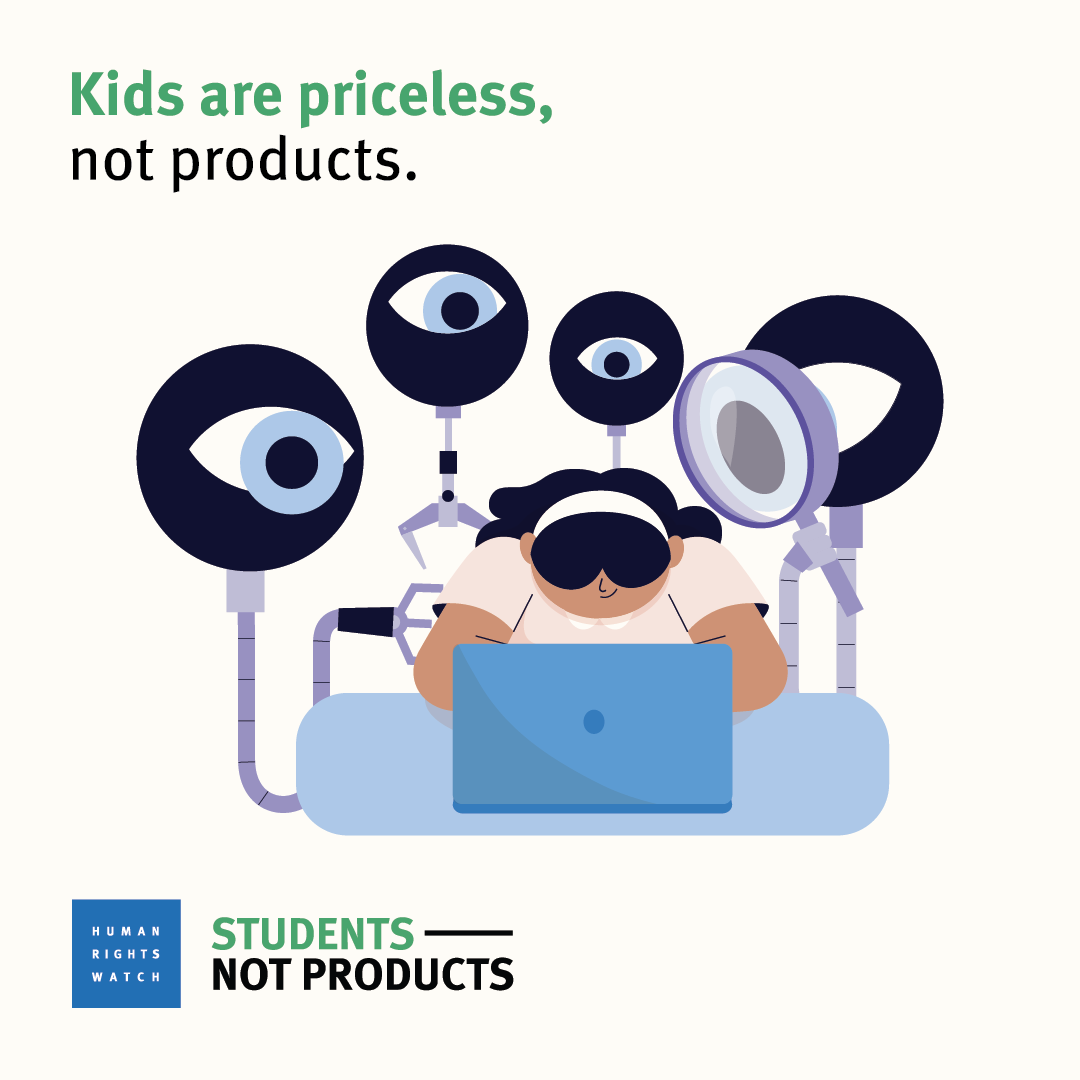
Evergreen
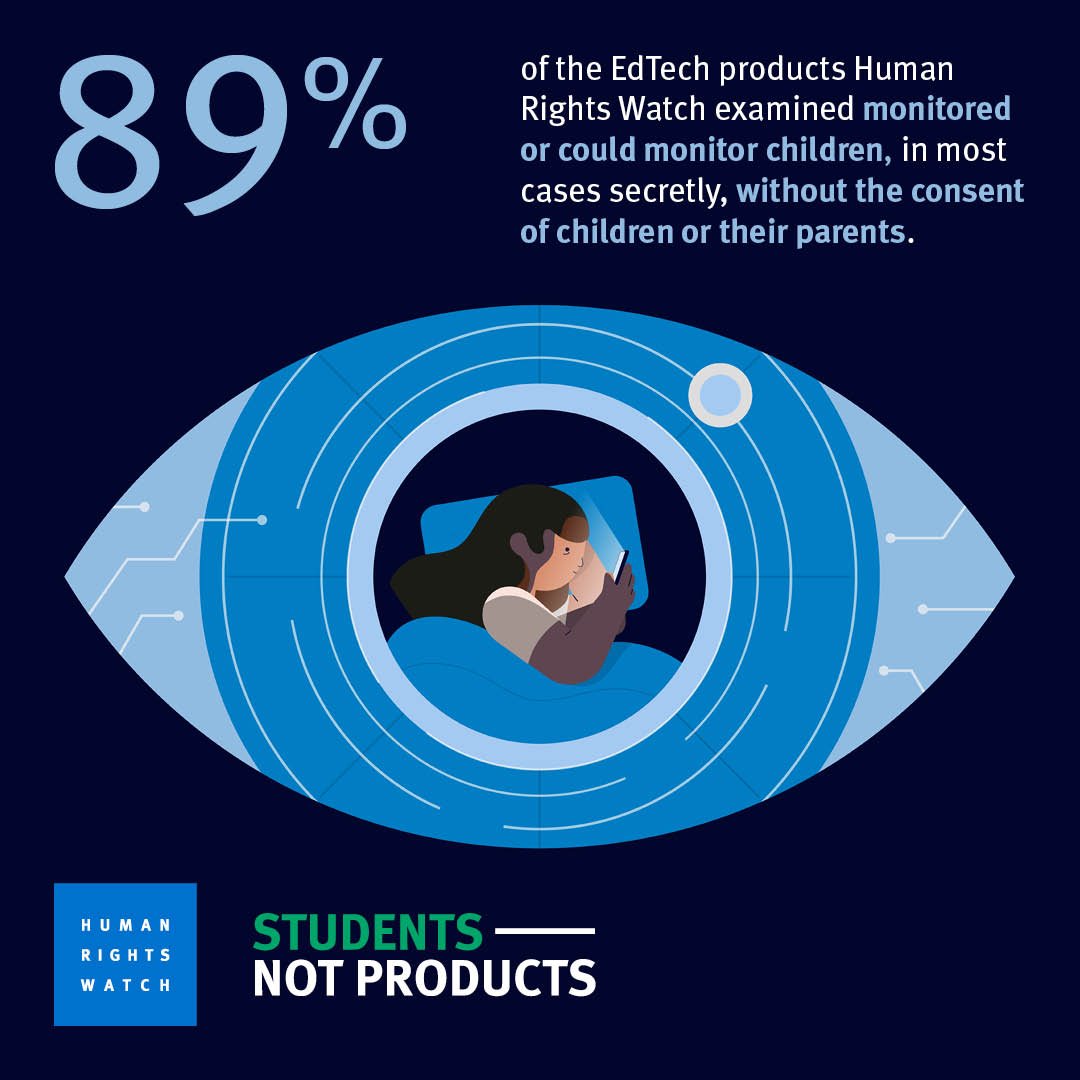
Data + Stats
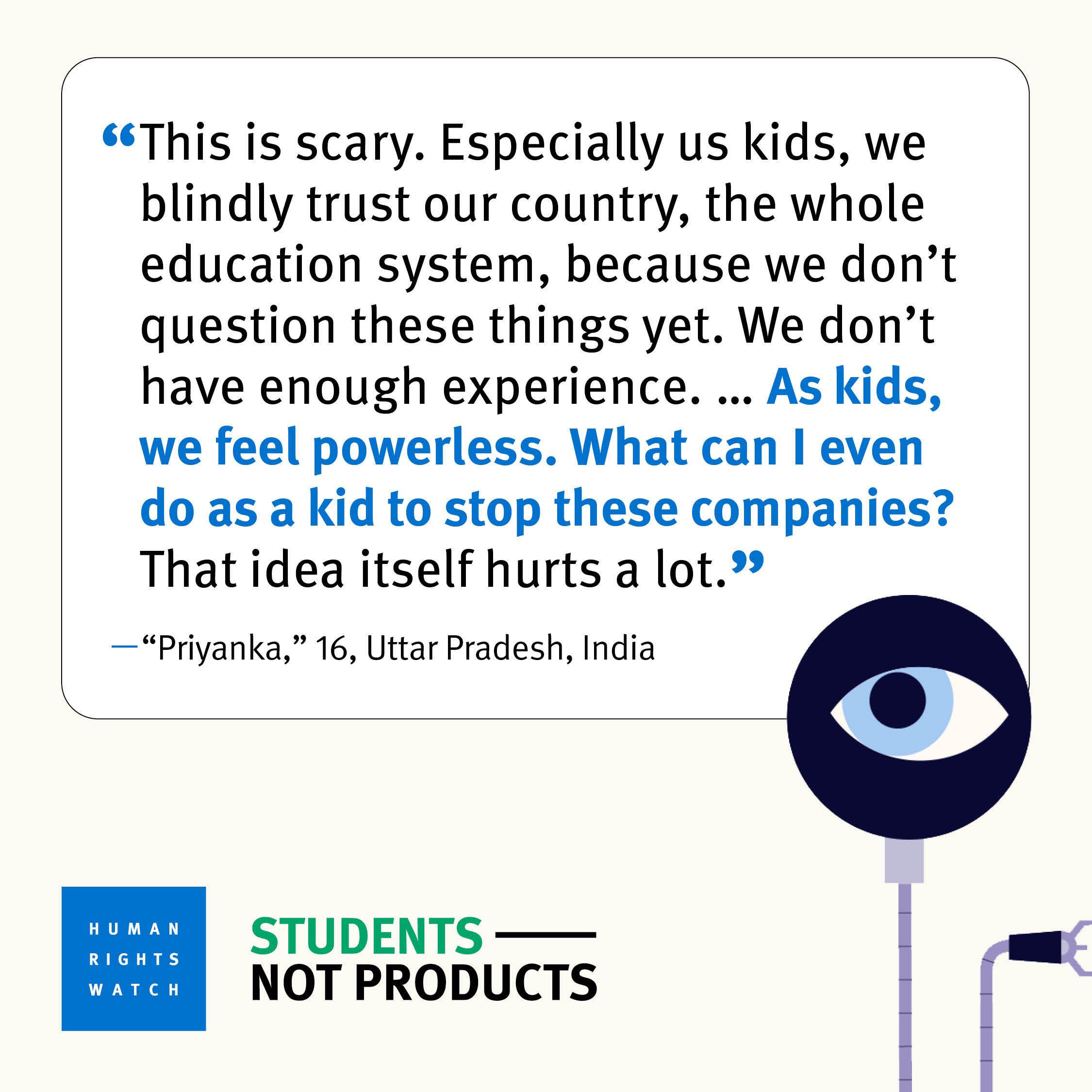
Stories + Quotes
A LOOK INSIDE THE PARENT TEACHER GUIDE
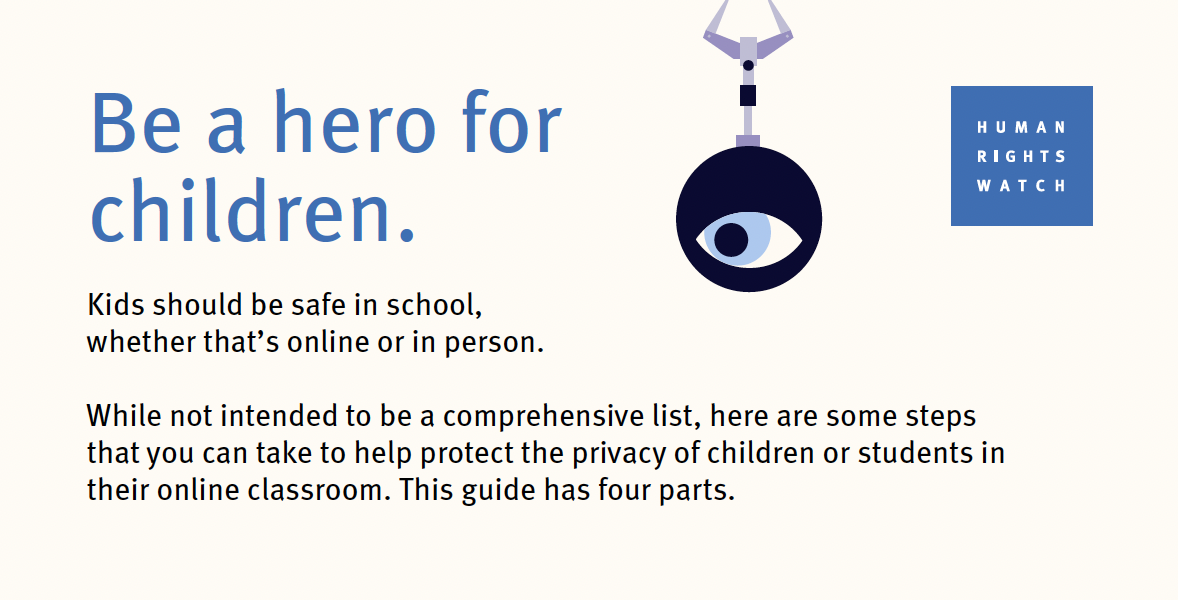
IMPACT


SOME GLOBAL CAMPAIGN HIGHLIGHTS
Within two months of launch, we had 175+ media mentions in multiple languages and 30+ advocacy countries. Hits were secured through media consortium collab with 25 journalists at 13 news organization including the Washington Post, Mediapart, Globe and Mail, El Mundo and more.
At least 3 (St Match in US, Criteo in France, Eboard in Japan) companies announced a change of policy after being questioned by the media.
Our hero explainer video launch on Instagram with 170,000+ views. The microsite content received overwhelmingly positive engagement online and won an Anthem and Webby award for excellence on the internet.
SOME BRAZIL CAMPAIGN HIGHLIGHTS
Successfully launched a regional iteration of #StudentsNotProducts in Brazil with a follow-on investigation and campaign strategy. From traditional media outreach using English/Portuguese products, we secured coverage in 350+ media outlets within 24 hours of launch.
In response, the state government of Minas Gerais removed all ad tracking from a website it had built to help children learn during the pandemic.
The media pressure also prompted some Brazilians companies to take prompt action and shield students or lessen the impact from data surveillance.





